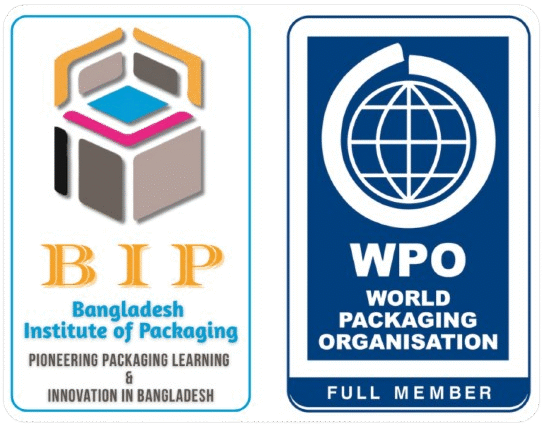Course Title: Floor Management, Safety, Compliance and Responsibilities in Flexible Packaging
Course Duration: 2 Days / 6 hours per day
Course Format: Combination of lectures, hands-on training, practical demonstrations, and assessments
Course Objectives:
Understand the roles and responsibilities of workers and machine operators in a flexible packaging factory.
Develop skills in operating and maintaining packaging machinery.
Learn best practices for safety, efficiency, and quality in the production process.
Gain knowledge of common issues and troubleshooting techniques.
Foster teamwork and communication among factory staff.
Target Audience:
Machine operators and technicians in the flexible packaging industry.
Production line workers.
Maintenance personnel.
New hires and existing employees needing refresher training.
Introduction to Flexible Packaging Production and Worker Roles
Overview of Flexible Packaging Production:
Introduction to the flexible packaging industry.
Overview of production processes (extrusion, printing, laminating, slitting, etc.)
Importance of worker and machine operator roles in production efficiency.
Roles and Responsibilities of Workers:
Understanding different roles on the production floor.
Coordination between machine operators, technicians, and other workers.
Expectations and responsibilities in maintaining production flow.
Workplace Safety and Compliance:
Safety protocols and procedures.
Personal protective equipment (PPE) and its proper use.
Compliance with industry regulations and workplace policies.
Case Studies:
Real-world examples of effective worker roles and safety practices.
Discussion on common challenges and solutions.
Machine Operation and Maintenance
Introduction to Packaging Machinery:
Overview of common machinery used in flexible packaging (extruders, printers, laminators, slitters, etc.)
Understanding machine functions and capabilities.
Basic machine setup and operation.
Machine Maintenance Basics:
Importance of regular maintenance for optimal machine performance.
Routine checks and preventive maintenance tasks.
Lubrication, cleaning, and calibration procedures.
Troubleshooting Common Machine Issues:
Identifying common machine problems (jams, misalignment, material feed issues, etc.)
Step-by-step troubleshooting techniques.
When to escalate issues to maintenance or technical teams.
Hands-On Training:
Practical exercises in machine operation and maintenance.
Simulated troubleshooting scenarios.
Quality Control and Efficiency in Production
Understanding Quality Standards:
Importance of quality in flexible packaging production.
Overview of quality control processes and standards.
Role of workers and machine operators in ensuring product quality.
Process Monitoring and Adjustments:
Techniques for monitoring production processes.
Making adjustments to machinery settings to maintain quality.
Recording and reporting quality data.
Lean Manufacturing Principles:
Introduction to lean manufacturing and waste reduction.
Techniques for improving efficiency on the production floor.
Role of workers in continuous improvement initiatives.
Case Studies and Practical Exercises:
Examples of quality control and efficiency improvements.
Hands-on exercises in process monitoring and adjustments.
Advanced Machine Operation and Teamwork
Advanced Machine Techniques:
Operating complex machinery and multi-stage processes.
Understanding advanced machine settings and controls.
Optimizing machine performance for different packaging materials.
Teamwork and Communication:
Importance of teamwork on the production floor.
Effective communication between machine operators, workers, and supervisors.
Conflict resolution and problem-solving techniques.
Emergency Procedures and Problem-Solving:
Handling emergency situations (machine breakdowns, safety incidents, etc.)
Step-by-step emergency protocols.
Role-playing exercises in problem-solving and teamwork.
Group Projects and Presentations:
Team-based projects focusing on improving machine operation or production efficiency.
Presentations and discussions of project outcomes.
Course Review, Assessment, and Certification
Review of Key Concepts:
Recap of essential skills and knowledge covered in the course.
Group discussion on challenges faced during training.
Assessment and Practical Evaluation:
Written and practical assessments to test participants’ understanding and skills.
Hands-on evaluation of machine operation and maintenance.
Q&A and Feedback Session:
Open forum for participants to ask questions and discuss any remaining doubts.
Collection of feedback for course improvement.
Certification Ceremony:
Awarding certificates to participants who successfully complete the course.
Final remarks and course wrap-up.
Course Materials:
Training manual with detailed instructions and guidelines.
Machinery operation and maintenance checklists.
Safety protocol handouts.
Case study documents.
Assessment and feedback forms.
Evaluation and Feedback:
Daily practical evaluations and quizzes.
Final written and practical assessment.
Participant feedback forms for continuous improvement of the course.
This course structure is designed to provide comprehensive training to workers and machine operators in a flexible packaging factory, focusing on operational efficiency, safety, and teamwork.
